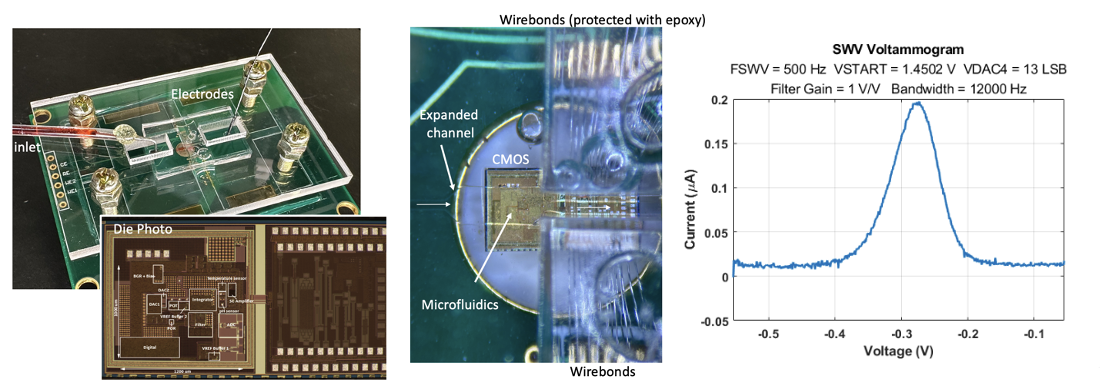Research
Our research focuses on devices for point-of-care diagnostics, and emphasizes continuous monitoring through wearables, implantable devices, injectables, and swallowables. We also explore millimeter-wave ICs for communication, sensing, and interfaces for qubits.
Topics
Circuits, Microfluidics, and Biosensors
Our goal is to transition from large, stationary instruments to miniature, mobile devices without sacrificing precision or efficiency. We are aiming to make the device so simple to use that everyone can do it at home. We believe such a paradigm shift could democratize healthcare access, making cutting-edge diagnostics available not just in advanced hospitals but also in remote areas and developing nations.


Wearables, Implantables, Injectables, and Swallables
Real-time “continuous” monitoring of specific biomarkers provides longitudinal data, facilitating not only swift medical decision-making but also early disease detection. Unlike current end-point diagnostic methods, this continuous-monitoring capability adds a new layer of depth to the pursuit of precision medicine and health. Our team designs and develops sensors and systems aligned with this vision. In particular, we harness molecular switches, such as single-stranded DNA, that enable reagent-free, reversible, and immediate responses.


High-speed, Millimeter-wave, and Cryogenic CMOS
We develop circuits and systems that transcend the typical design trade-offs encountered with standard circuit topologies. to achieve high-speed and low-noise performance yet at high energy and area efficiency. We aim to achieve high-speed, low-noise performance while maintaining high energy and area efficiency.

Sponsors
UC Berkeley Wireless Research Center
UC Berkeley Sensor & Actuator Center
Analog Devices Inc.
AMD
National Institute of Health
National Science Foundation
MediaTek Advanced Research Center (MARC)